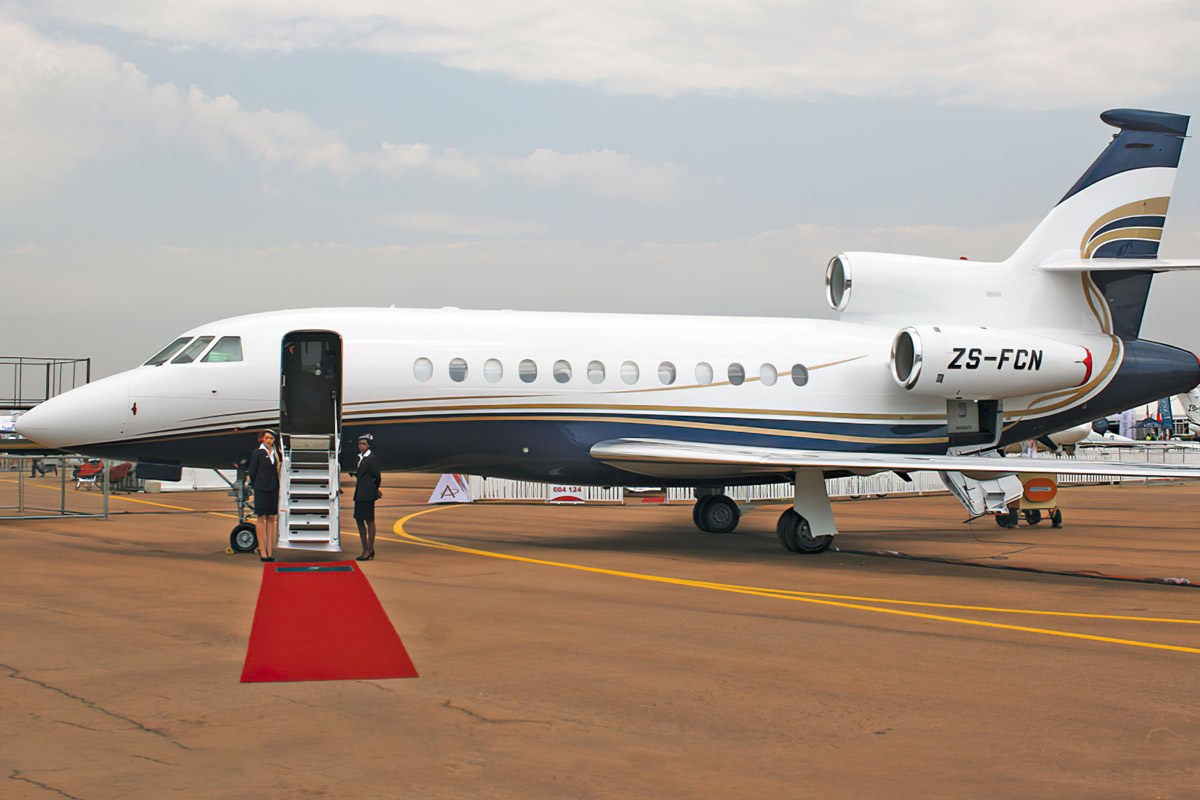Interest in business jets has soared across Africa in the past 18 months.
Whether responding to limited and declining airline options or pursuing the undoubted health and safety benefits of private jet travel compared to commercial flights, the business case for private aviation has gained in strength. At Jetcraft, we’re now receiving three times as many enquiries from potential new aircraft owners in Africa than before the pandemic.

Increasingly, many companies are today expanding with new business units across more countries in Africa. As a result, air travel and aircraft to suit remain essential. Demand for business jet ownership is rising dramatically across the continent, as seen in countries such as Angola, Uganda and Ghana. In Kenya, which already has a strong installed base of short-range private aircraft used for tourism, we’re seeing growing interest in larger jets for longer missions. Established markets such as Nigeria and South Africa remain vibrant.
An aircraft for every mission
All major manufacturers – from Bombardier and Embraer to Dassault and Gulfstream – are very active in Africa, and all sizes of business jets have applications. The vast distances involved in traveling around the African continent mean medium- to long-range jets such as Embraer’s Legacy series, and Dassault’s Falcon 900 models attract high levels of interest. The continent’s business links with Europe and the Middle East are also growing, thus requiring aircraft that can serve this operational need. Meanwhile, in Southern and West Africa we’re seeing demand for light jets such as Bombardier’s Learjet 45 and 75, suited to shorter-range, regional operations.
A key consideration in Africa when choosing the size and model of your business jet is the quality and capability of the maintenance facilities and support infrastructure available in the particular region. At Jetcraft, we can with confidence refer buyers and owners of such aircraft to suitable maintenance facilities and operators.
Industry education
One consequence of rising demand for business aircraft in Africa is the need for our industry to educate first-time buyers not only on the aircraft options, but also how the market works, helping them to understand aircraft values, the different capabilities of jets in each segment, and the responsibilities and implications of ownership. Banks and financing organizations, especially those new to the aviation market might need education too. With this in mind, it’s especially important for first-time aircraft buyers to work with an experienced aviation advisor to guide them.
Regional opportunities
Fractional (partial) ownership programs aren’t currently viable in Africa, with users too widely spread, so outright ownership supports clients that need to have consistent access to their business interests across the continent. We expect to also see owners take increasing interest in the commercial opportunities of offering their jets for charter over the coming months.
A second consequence of the rising demand for business jet ownership is that existing owners can take advantage of current low global inventory levels to sell their aircraft, either in Africa or into the international market. Current owners might be looking to upgrade to a larger jet, or operators with multiple aircraft could be rationalizing their fleets. Whatever the reason, tightening supply in the industry, coupled with the heightened value proposition of business aviation during Covid-19, is creating a great window of opportunity for buyers to sell or trade-in their assets.
Values remain consistent
Aircraft values in Africa do not exist in isolation and typically reflect trends in the global market. It’s important to note that while business jet values may be firming up, they are not spiking so there is no need to overbudget when planning how you will finance your aircraft.
Although values of aircraft coming out of certain countries in Africa have sometimes been impacted by concerns over civil aviation standards, those territories are exceptions and known to the market. In fact, several maintenance facilities in Africa now offer work that meets US Federal Aviation Administration (FAA) or European Union Aviation Safety Agency (EASA) standards, with several officially approved FAA and EASA maintenance organizations. OEM appointed Authorised Service Centres in Africa cover most major products. The important consideration is not where the aircraft was based, but rather how it was managed and maintained. Many high-quality aircraft can therefore be sourced from African owners.
Expert support vital
Africa is a vast continent of 54 countries, each with their own civil aviation authorities and regulatory environments. Added to this is the multiple local currencies and foreign exchange arrangements that apply when trading in US dollars, the primary currency in which aircraft are traded. In this region, it’s especially critical for aircraft buyers to engage an experienced advisor with a global network who understands these complex dynamics and can offer the depth and breadth of support needed to succeed when buying or selling in Africa.
Experience has shown that a seller in Africa placing an aircraft with a small US-based broker could easily find a year passing without a sale or serious enquiry, whereas at Jetcraft our global network of experts know where the buyers are, and we have been in a position to table suitable offers within a very reasonable period. Our international footprint means we often source aircraft before they’ve been listed, providing faster results.
By Danie Joubert, Vice President Sales – Africa

